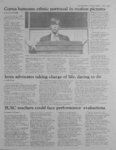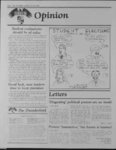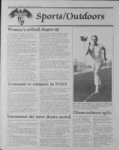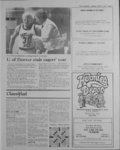Southern Utah University Student Newspapers | 1984-03-04 | Page 3
| Type | issue |
| Date | 1984-03-04 |
| Paper | Southern Utah University Student Newspapers |
| Language | eng |
| City | Cedar City |
| County | Iron |
| Category | School |
| Rights | In Copyright (InC) |
| Rights Holder | Southern Utah University, Cedar City, UT |
| Publisher | Digitized by J. Willard Marriott Library, University of Utah |
| ARK | ark:/87278/s69077wh |
| Reference URL | https://newspapers.lib.utah.edu/ark:/87278/s69077wh |
Page Metadata
| Type | page |
| Date | 1984-03-04 |
| Paper | Southern Utah University Student Newspapers |
| Language | eng |
| City | Cedar City |
| County | Iron |
| Category | School |
| Page | 3 |
| Reference URL | https://newspapers.lib.utah.edu/ark:/87278/s69077wh/26681024 |














